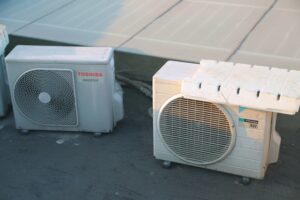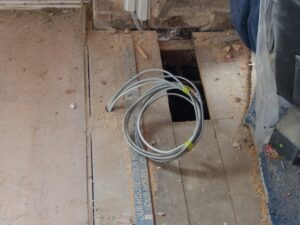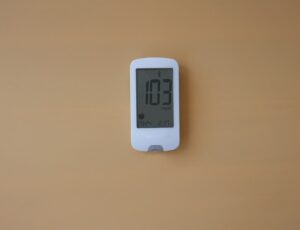If you’re in the market for a new water heater, you’re probably wondering which type is best for your home or business. With so many options available, it can be overwhelming to make a decision. Fortunately, our team of professionals are here to help you decide.
One of the most important factors to consider when choosing a water heater is energy efficiency. A more efficient water heater will not only save you money on your energy bills, but it will also reduce your carbon footprint. Another important consideration is the temperature of the water.
You want to make sure that your water heater is capable of producing hot water at the temperature you prefer. You’ll also want to think about your hot water usage. How many people will be using hot water in your home or business, and how much hot water do you typically use on a daily basis? Answering these questions can help you determine the size and type of water heater that will best meet your needs.
To discuss your personal needs, get in touch.
Types of Water Heaters
When it comes to choosing a water heater, there are several types available, each with its own set of advantages and disadvantages. Here are the most common types of water heaters:
Tankless Water Heaters
Tankless water heaters, also known as on-demand water heaters, heat water directly without the use of a storage tank. They are more energy-efficient than storage tank water heaters because they only heat water when it’s needed, which means they don’t waste energy keeping a large tank of water hot. Tankless water heaters are available in both electric and gas models.
Storage Tank Water Heaters
Storage tank water heaters are the most common type of water heater. They work by heating and storing a large tank of water until it’s needed. The tanks are available in a range of sizes, from 20 to 80 gallons. Storage tank water heaters can be powered by electricity, natural gas, or propane.
Heat Pump Water Heaters
Heat pump water heaters work by transferring heat from the air or ground to heat the water. They are more energy-efficient than storage tank water heaters because they use less electricity to heat the water. Heat pump water heaters are available in both residential and commercial models.
Solar Water Heaters
Solar water heaters use energy from the sun to heat the water. They are more energy-efficient than storage tank water heaters because they use renewable energy. Solar water heaters are available in both residential and commercial models.
Condensing Water Heaters
Condensing water heaters are a type of tankless water heater that uses a secondary heat exchanger to extract heat from the exhaust gases. They are more energy-efficient than traditional tankless water heaters because they use the heat that would otherwise be wasted. Condensing water heaters are available in both electric and gas models.
Factors Influencing Water Heater Performance
When choosing a water heater, there are several factors to consider that can impact its performance and efficiency. Here are some key factors to keep in mind:
Capacity and Size
The capacity and size of a water heater can impact its performance. A larger capacity water heater may be necessary if you have a larger household or if you use a lot of hot water. However, a larger water heater may also be less energy-efficient and more expensive to operate. It’s important to find the right balance between capacity and energy efficiency.
Energy Efficiency Ratings
Energy efficiency ratings are an important consideration when choosing a water heater. The Uniform Energy Factor (UEF) is a rating system that measures a water heater’s efficiency. The higher the UEF rating, the more efficient the water heater is. Energy-efficient water heaters can help you save money on your energy bills over time.
Fuel Source and Availability
The fuel source you choose can impact the performance and efficiency of your water heater. Natural gas water heaters are a popular option, but they may not be available in all areas. Electric tankless water heaters are another option, but they may not be suitable for larger households or homes with high hot water demand. It’s important to consider the availability of fuel sources in your area and choose a water heater that is compatible with your home’s infrastructure.
Installation and Maintenance Considerations
When it comes to water heaters, proper installation and ongoing maintenance are crucial for optimal performance and longevity. Here are some key factors to consider:
Professional Installation
Proper installation of a water heater is critical to ensure safe and efficient operation. Hiring a professional for installation is highly recommended. Our team at Excel Mechanical is a reputable company that provides exceptional quality and great value for both residential and commercial HVAC and plumbing services.
Professional installation ensures that the water heater is installed correctly, including proper plumbing and venting. It also ensures that leak detection systems are properly installed, minimizing the risk of damage from potential leaks.
Ongoing Maintenance
Regular maintenance is necessary to ensure the water heater continues to operate efficiently and effectively. This includes flushing the tank to remove sediment buildup, checking the anode rod, and ensuring the self-cleaning system is functioning properly.
Cost Analysis and Budgeting
When considering purchasing a water heater, it is important to take into account the initial purchase price, operational costs, and payback time and savings. These factors will help you determine the best water heater for your budget and energy efficiency needs.
Initial Purchase Price
The up-front cost of a water heater can vary greatly depending on the type, size, and features. According to Forbes Home, water heaters can cost as little as $815 and range up to costs of $10,000 or more. Tankless water heaters tend to be more expensive than traditional tank water heaters, but they are also more energy-efficient.
We understand that budget is an important consideration when making any purchase. That’s why we offer a range of water heaters at different price points to meet your individual needs and budget.
Operational Costs
When it comes to operational costs, it’s important to consider both electricity and gas costs. According to Consumer Reports, the cost of heating water consumes almost 20 percent of your household budget, second only to what you spend on heating and cooling your home. However, choosing an energy-efficient water heater can help to reduce these costs.
Payback Time and Savings
Payback time and savings are important factors to consider when purchasing a water heater. According to Bob Vila, the payback time for a tankless water heater can range from 5 to 10 years, while a traditional tank water heater may take up to 15 years to pay for itself. However, energy-efficient water heaters can help to reduce these payback times.
Environmental Impact and Regulations
When choosing the best water heater, it’s important to consider the environmental impact and regulations. In recent years, there has been a growing concern about the impact of water heaters on the environment. As a result, there are now regulations in place to ensure that water heaters are energy-efficient and have a minimal carbon footprint.
Reducing Carbon Footprint
One of the main environmental concerns with water heaters is their carbon footprint. Traditional water heaters can be a major source of greenhouse gas emissions. However, energy-efficient models can significantly reduce the carbon footprint of a water heater. By choosing an energy-efficient water heater, you can reduce your carbon footprint and help protect the environment.
Compliance with Efficiency Standards
Efficiency standards are in place to ensure that water heaters are energy-efficient and have a minimal carbon footprint. These standards dictate the minimum energy efficiency that a water heater must meet. Choosing a water heater that complies with these standards allows you to do your part to protect the environment.
We’re committed to providing the best possible HVAC and plumbing services for all of our customers. We are professionals who strive for exceptional quality and great value. To discuss your next steps, get in touch.




